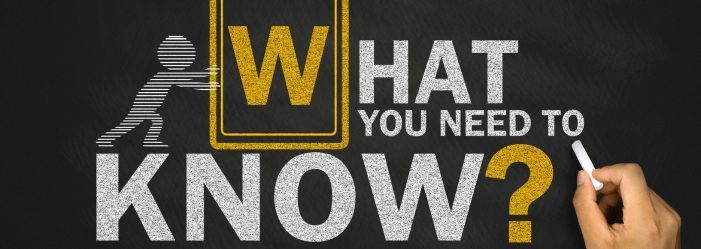Last Updated November, 07, 2023
You Need to Know Before Getting a Consolidation Loan

It's not uncommon to feel overwhelmed by the idea of managing your debt. While many people are able to pay their bills and stay afloat, others find themselves sinking deeper into debt, and struggling with how to manage it all.
If you're one of those individuals who has been considering a debt consolidation loan as a way out, we want to provide some information for you about this type of loan before you make any decisions.
What is a debt consolidation loan and how does it work?
A debt consolidation loan is a personal loan that can consolidate your ongoing debts into one single monthly payment. Learn more by reading the article about decoding the complex world of debt consolidation.
A debt consolidation loan helps to reduce the amount of interest you are paying on different credit cards by consolidating them under the one-time repayment plan for the loan. Check out debt consolidation solutions to eliminate debt for more information.
Debt consolidation loans can also help to manage payments and repayments, as often it's difficult for you to keep up with payments if they're due every month at different intervals.
Learn more about debt consolidation and if it’s right for you.
The benefits of a debt consolidation loan
The primary benefit of a debt consolidation loan is that it lowers the number of payments you have to make in a month by combining all your loans into one monthly payment. This can be especially helpful if you're trying to manage an unmanageable amount of monthly bills.
If your goal with debt consolidation is to pay it off quickly, then this strategy has no bearing on the length of time it will take you to repay your loan.
But regardless, any money spent paying down your debt will be worth more than walking away from these obligations and living in financial ruin for years and years thanks to penalties, fees, and compounded interest charges.
Debts that can be consolidated with a debt consolidation loan
Debts that can be consolidated with a debt consolidation loan are usually unsecured debts, such as credit cards and medical bills.
Debt consolidation loans generally don't cover things like auto loans, mortgage loans, or business loans because they are secured by collateral. Consolidating unsecured debts is just one option for managing unmanageable debts.
For example, Canadian residents who have accumulated high-interest debt on low income may find that consolidating their high-interest credit card debt into a lower interest rate loan leads to more manageable monthly payments and reduces the risk of defaulting on their loan obligation.
Debt consolidation loans are one of the last options that any irresponsible debtor should try out before declaring bankruptcy.
These types of loans are, by design, only supposed to be used when all other avenues have been exhausted and nothing else is available to help get the payments down on what is owed.
It would take some work to figure out what was even involved in someone using this type of loan for them to make sure they were able to eventually pay back what they owed overtime.
How to choose the right debt consolidation option
With different debt consolidation options like balance transfer cards, personal loans, and home equity loans, it can be tricky to decide which is the best fit for your financial situation.
Here are some tips for choosing the right debt consolidation method:
- Take stock of the total amount of debt you need to consolidate. Options like balance transfer cards tend to have lower limits, while home equity loans allow you to tap more available credit.
- Consider your credit score. You'll need good to excellent credit for most debt consolidation loans. Balance transfer cards may be an option for those with fair credit.
- Compare interest rates across different offers, factoring in balance transfer fees. The lower the rate, the more you can save.
- Opt for the shortest term you can afford to pay off the debt faster.
- Make sure you will have the discipline not to rack up more debt before the consolidated balance is paid off.
Should I consolidate my debts or should I file for bankruptcy instead?
Bankruptcy can reduce your debt, many financial experts agree that this is true. However, the factors taken into consideration when evaluating options offer little comfort for someone considering bankruptcy over other options.
The one exception to the nightmare solutions is Chapter 7 bankruptcy which has a significantly lower cost than any of the other chapters and offers more time for explanation of what's happening than chapter 13.
On the other hand, some people may be able to pay off their debts within five years using an option like Debt Management Plans which don't bear interest charges or penalties, so it wouldn't make sense to file bankruptcy either.
Debt consolidation can sometimes be a good idea, but it's not for everyone. If you have high-interest debts and low levels of income, debt consolidation may help you to get things under control.
But it may not be the best idea if you're struggling financially because other methods like bankruptcy might work better for your situation. Of course, that really depends on many factors which are unique to your situation; this is just one example of the variety of situations in which either option could potentially apply to someone wishing to pay off their debt.
The decision should never be made lightly given its serious implications for both your finances and credit score; however, the benefits often outweigh the costs when all variables are carefully considered.
How to apply for a debt consolidation loan
This really depends on the person's individual situation, especially their credit history.
Always be mindful of the terms of a loan before taking one out. With consolidation loans, it can be difficult to know upfront what those terms are going to be considering every creditor has a different specific request for repayment.
These may include things like fixed monthly payments, fixed total cost over time, and fixed total amount owed overall just as an example.
It's important that you have all the details from each company so that you can compare loan options from those creditors individually and then decide which just might work best for your individual needs as well as budget.
Credit score requirements for applying for a debt consolidation loan
Debt consolidation loans typically have a credit score requirement of 700 or higher.
Poor credit scores make it difficult to qualify for a debt consolidation loan, but they also make it more expensive to manage long-term debt because high-interest rates increase payments and may cost you more in the long run.
Consolidating your debts into one low monthly payment is an easy way to get out of debt without spending money on expensive credit balances and contract termination fees, so it's worth working on improving your credit score again before applying for a loan.
Learn more by reading How To Get Debt Consolidation Loans For Bad Credit Scores
Alternatives to debt consolidation loans
If your credit score or debt amount makes approval for a traditional consolidation loan unlikely.
Some other options to consider include:
- Credit counseling - Nonprofit credit counseling agencies can negotiate lowered interest rates and payments.
- Debt management plan - Credit counselors set up a DMP to consolidate debts into one payment.
- Debt settlement - You stop paying creditors and a settlement company negotiates reduced payoffs.
- Bankruptcy - As a last resort, Chapter 7 or 13 bankruptcy can eliminate debt under court supervision.
Each option has pros and cons to weigh, but they provide alternatives if debt consolidation loans are out of reach. Speaking with a credit expert can help determine the most strategic approach.
FAQs
Conclusion
You can't get out of debt without getting into it first. A debt consolidation loan is a great way to consolidate your loans and improve your credit score, but they're not for everyone.
If you have high-interest rate cards, then the interest rates on the new card may be significantly lower than your old ones so that could save you money in the long run while saving yourself from paying more over time with higher interest rates.
The right answer for you will depend on your unique situation. If you're considering a debt consolidation loan, we recommend that you get the help of an expert financial advisor who can evaluate what type of financing is best for you and provide concrete advice to make sure this decision works in your favor.
We’re here to help!
Contact us today with any questions or concerns you have about debt.
✔ Accredited by Better Business Bureau with BBB A+ rating (4.93 rating and 1678 reviews)
✔ US News and World Reports and Bankrate ranked Pacific Debt Relief as one of “The Best Debt Relief Companies of 2024”
✔ 6.9 star rating by BestCompany.com (over 2379 client reviews)
✔ 4.8 star rating by TrustPilot based (over 1613 verified consumer reviews)
✔ ConsumerAffairs.com Accredited (over 544 verified reviews with an average rating of 5 stars)
✔ A Top 10 Rated Compan by TopTenReviews.com , ConsumersAdvocate.com and Top10debtconsolidation.com
✔ 4.6 star rating by Google (229 client reviews)
✔ 100% rating by SuperMoney (9 client reviews)
Reduce Your Credit Card Debt By Up to Half

BBB Reviews | 4.9/5.0 Rating









 Do Not Sell My Personal Information
Do Not Sell My Personal Information